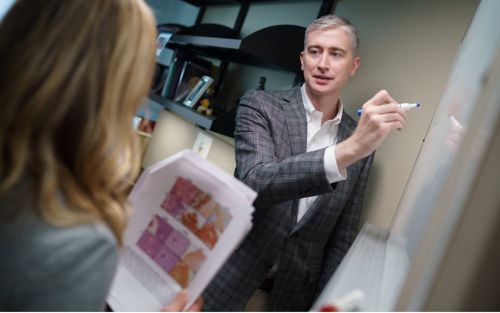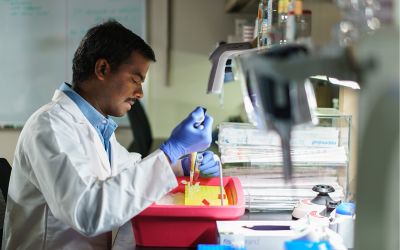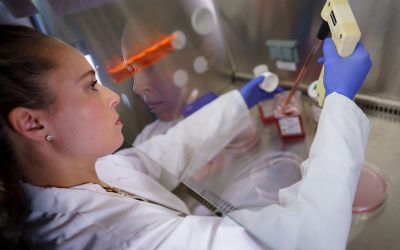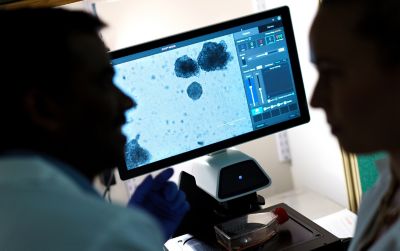St. Jude Family of Websites
Explore our cutting edge research, world-class patient care, career opportunities and more.
St. Jude Children's Research Hospital Home

- Fundraising
St. Jude Family of Websites
Explore our cutting edge research, world-class patient care, career opportunities and more.
St. Jude Children's Research Hospital Home

- Fundraising
Andrew Jackson Murphy Lab
Investigating the biological basis of treatment resistance in Wilms tumor
About the Murphy lab
Wilms tumor is among the most common childhood cancers and is the most common kidney cancer. While the overall disease responds to treatment in many pediatric patients, several subgroups continue to experience poor outcomes. Our research focuses on enhancing the understanding of Wilms tumor biology in these high-risk patients to improve outcomes.

Our research summary
As our laboratory strives to enhance our insights into the biology of Wilms tumor, our research focuses on three high-risk cohorts—patients who have a histologic finding called diffuse anaplasia (unfavorable histology), those with favorable histology whose cancer then relapses, and those with bilateral kidney tumors.
To address the needs of these cohorts, we develop model systems to study Wilms tumor. Our research, conducted within the Department of Surgery, has created patient-derived xenograft model systems for these tumors. With these systems, we have established a library of more than 45 xenografts that capture the high-risk patient populations as well as disease heterogeneity. With this model xenograft library, we can capture the majority of genetic drivers for Wilms tumor and test therapeutics according to molecular subtypes.

We also developed a patient-derived xenograft model of chemotherapy resistance by treating xenografts with repeated cycles of standard-of-care chemotherapy until the tumors evolve to resist therapy. Our approach manipulates the model system and illuminates how these tumors become treatment-resistant and how we can combat that resistance. Our future work will include a comprehensive characterization of resistance development in these xenografts to explore whether the resistance emerges from a minor subclone present in the original tumor or if it is caused by epigenetic reprogramming of cancer cells. Along this line of research investigation, our lab leads the biological aims of a St. Jude protocol called SJWT21 to establish patient-derived xenografts from heterogeneous regions of each Wilms tumor to characterize the intra-tumor genetic heterogeneity and treatment response.
In addition, our laboratory participates in an ongoing study with colleagues in the Netherlands. This collaboration pairs patient-derived organoids with our xenografts to perform drug screening and validate potential targets in the xenograft models. Our work prioritizes high-risk subsets of Wilms tumor, including those with diffuse anaplasia and blastemal predominance after neoadjuvant chemotherapy. This collaborative effort will define the complementary role of two leading model systems in Wilms tumor research and potentially define a streamlined workflow for compound discovery, preclinical studies, and personalized cancer therapy.

Our research into model development and treatment resistance employs a variety of experimental approaches and techniques including single nuclear transcriptome analysis, DNA methylation analyses, ChIP-seq, RNA-Seq, single-cell RNA sequencing, CRISPR-Cas9 testing, and live cell imaging. The underlying goal of our work is to expand the biological understanding of Wilms tumor to improve treatment and outcomes for children with this cancer.

Publications
Contact us
Andrew Jackson Murphy, MD
Assistant Member
Department of Surgery
MS 133, Room IA2305
St. Jude Children's Research Hospital
Memphis, TN, 38105-3678 USA
Follow Us

Memphis, TN, 38105-3678 USA GET DIRECTIONS